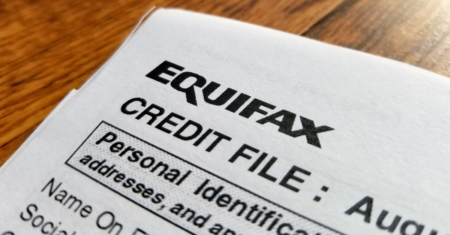
A credit score is a numerical representation of your creditworthiness, derived from an analysis of your credit files. It’s a three-digit number that lenders use to evaluate the risk they take when they lend you money. Credit scores are designed to predict how likely you are to pay back your debts on time.
The most common type of credit score is the FICO score, which ranges from 300 to 850. The higher the number, the lower the perceived risk. To calculate these scores, credit reporting agencies use information from your credit report, including your payment history, the amount of debt you have, the length of your credit history, and the mix of credit types you use.
Related articles
- How to Choose, Apply and Manage a Car Loan Online
- What Is Credit Management? 3 Ways To Improve Your Credit Management Process
- What Is A Good Credit Score?
- See Here How to Get Your Social Security Declaration
Having a high credit score can make it easier to get approved for loans and credit cards, often with lower interest rates. On the other hand, a low credit score can make it more difficult to secure financing and could potentially lead to higher interest rates.
It’s important to note that everyone has multiple credit scores, which may differ depending on the scoring model used and the credit bureau that provides the score. Regularly checking and understanding your credit score is an important aspect of managing your financial health.
Having a high credit score is of utmost importance as it is a numerical representation of your financial trustworthiness. A high credit score can open doors to various financial opportunities such as approval for mortgages, loans, and credit cards at lower interest rates. Moreover, it can aid in obtaining approvals for rentals, insurance, and even certain jobs.
However, achieving a high credit score doesn’t happen overnight. It requires careful credit management, timely payments, and solid financial decisions. But worry not! Throughout this article, we will share valuable tips and effective strategies that can help you boost your credit score. Stay tuned!
Understanding the importance of a high credit score is just the first step. Now, let’s dive into some effective strategies to improve your credit score:
1- Timely Payments:
refer to the act of paying off your credit obligations on or before the due date. This is one of the most significant factors that credit bureaus consider when calculating your credit score.
Making your payments on time shows potential lenders that you are reliable and can manage your debts responsibly. Late or missed payments, on the other hand, can have a negative impact on your credit score. This is because they indicate to lenders that there is a higher risk involved in lending to you, as there’s a chance you might not repay the loan on time.
It’s important to note that not all types of accounts report to the credit bureaus, so even if you’re making timely payments on an account, it might not have any impact on your credit score if the lender doesn’t report to the bureaus. However, for those that do, maintaining a history of timely payments can significantly improve your credit score over time.
2- Keeping Low Balances:
On your credit accounts is a key aspect of maintaining a good credit score. This concept is related to your credit utilization ratio, which is the percentage of your available credit that you’re currently using.
For example, if you have a credit card with a $10,000 limit and you’ve charged $2,000 on it, your credit utilization ratio on that card is 20%. Credit scoring models often consider your overall credit utilization ratio across all your accounts, as well as the ratios for each individual account.
A lower credit utilization ratio is better for your credit score. Experts often recommend keeping your overall credit utilization ratio below 30%. This shows lenders that you’re able to responsibly manage and pay off your debts without maxing out your credit lines.
However, it’s important to note that while keeping low balances can help improve your credit score, it’s also crucial to make all payments on time and manage all aspects of your financial life responsibly. Credit scores are based on a combination of factors, and focusing on just one won’t necessarily result in a high score.
In conclusion, making timely payments is crucial for maintaining and improving your credit score. It demonstrates financial responsibility and reliability, which can make you more attractive to potential lenders.
3- Don’t Close Old Credit Accounts:
Is a strategy often recommended for maintaining a good credit score. This is because the length of your credit history contributes to your overall credit score. The longer you’ve been responsibly managing your credit, the better it is for your score.
When you close an old credit account, especially one with a positive payment history, it can shorten the average age of your accounts and potentially lower your credit score. Additionally, closing a credit card account may increase your credit utilization ratio because you have less available credit overall.
However, this doesn’t mean you should never close old accounts. If an old credit account has high fees or if having too many open accounts is tempting you to overspend, it might be beneficial to close the account.
In conclusion, while keeping old credit accounts open can be beneficial for your credit score, it’s important to consider all factors, including fees and your own spending habits. As always, responsible financial management is key.
4- Limit Credit Inquiries:
Limiting Credit Inquiries is an important aspect of maintaining a good credit score. A credit inquiry occurs when a lender checks your credit report to make a lending decision. There are two types of credit inquiries: hard and soft.
A hard inquiry typically happens when you apply for credit, such as a mortgage, car loan, or credit card. Hard inquiries can lower your credit scores by a few points and can remain on your credit report for two years. Multiple hard inquiries in a short period can be seen as a sign of financial distress, which can further lower your scores.
A soft inquiry, on the other hand, does not affect your credit scores. These can occur when you check your own credit score or when a company checks your credit for a pre-approved offer.
Therefore, it’s important to limit the number of hard inquiries on your credit report. Before applying for new credit, consider whether it’s necessary and how it might impact your overall financial health. Remember, each hard inquiry stays on your report for two years, but its impact on your scores decreases over time.
If you’re wondering where you can check your credit score on the internet, there are several options available. You can check your credit score for free by visiting websites like Experian, Credit Karma, and others. These sites typically offer access to your credit report, score, and/or credit monitoring.
As for the time it takes to improve your credit scores, this can vary depending on your current financial situation and credit habits. Generally, depending on where you’re starting from and how you manage your finances, it can take anywhere from a month to up to several years. However, you could see improvement in as little as 30 to 60 days by making timely payments, reducing your debt, and limiting new credit inquiries.
Remember, improving your credit scores is a journey, not a destination. It requires time, patience, and consistent financial management. But with discipline and the right strategies, you can see your score improve over time.
About the Author






0 Comments